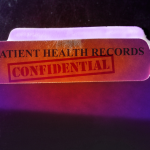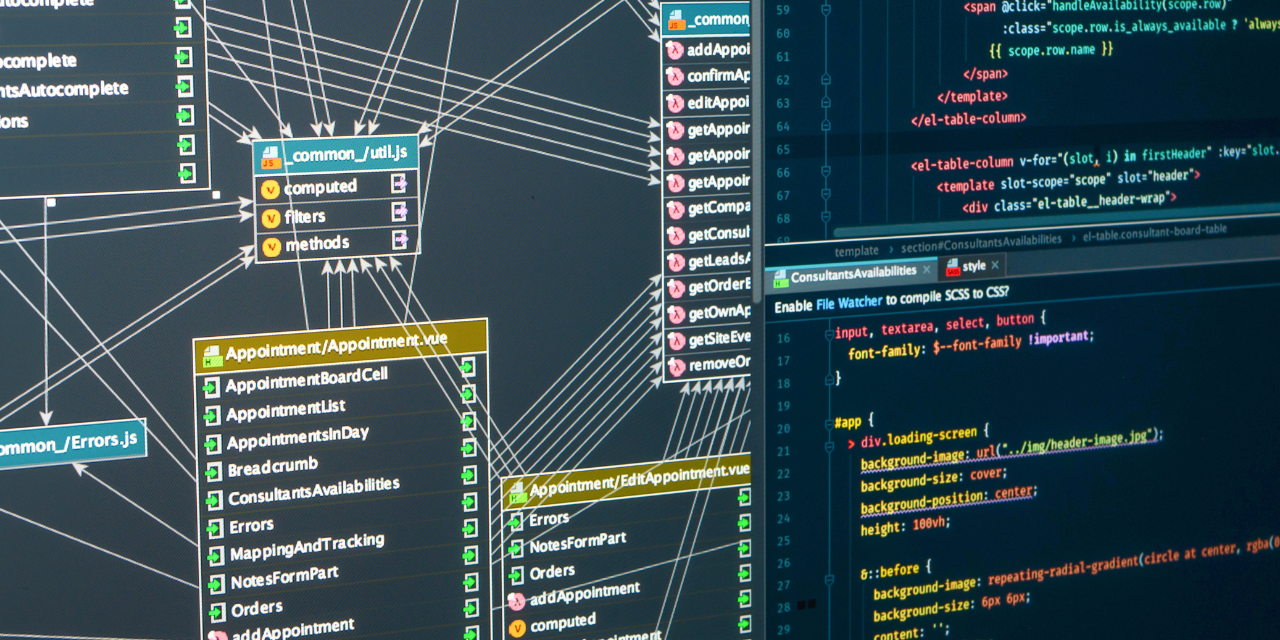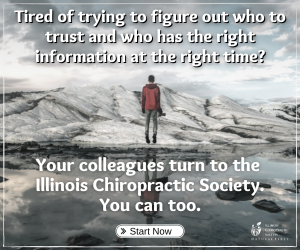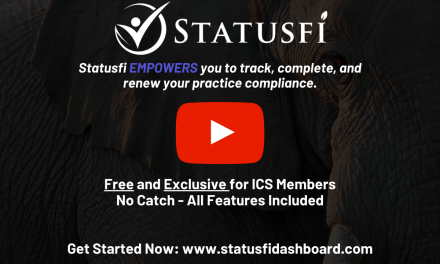
NPDB: Uncle Sam Wants Information About Your License

The U. S. government leaves most functions of physician regulation to the individual states. As a result, prior to 1990, information about adverse physician license actions was maintained in state “silos” with no centralized point of data collection. When a state licensing board sought information about adverse actions against an applicant’s license in other states, the board would need to query each state separately, a burdensome administrative task.
In response, the U.S. Department of Health and Human Services (DHHS) established the National Practitioner Data Bank (NPDB) in 1990 to gather centralized information about adverse actions taken against health care licenses. The database is not available to the public but is designed to be used by state licensing agencies and health care facilities in decisions involving licensure or clinical privileges. The data bank’s purpose is to improve medical care by preventing incompetent physicians from moving from state to state without disclosure or discovery of prior adverse actions by other regulatory agencies, health care entities, or insurers.
Physicians should be aware of the NPDB’s potential impact on important aspects of the individual’s practice. Effectively, it means that any adverse action against a physician license, a physician’s facility privileges, participation in a network, or civil judgment, will become known to all regulators, networks, and facilities to which the doctor later applies.
A SUMMARY OF NATIONAL PRACTITIONER DATA BANK (NPDB) REQUIRED REPORTS AND EXCLUDED CATEGORIES
The National Practitioner Data Bank (NPDB) requires reports in three major categories[i], all subject to disclosure to licensing agencies, networks, and facilities:
- A professional liability insurer (i.e., malpractice carrier) must report to the NPDB any time it makes a payment on behalf of a physician for alleged medical malpractice;
- A facility or network must report to the NPDB when any adverse action is taken against a physician’s clinical privileges or network participation; and
- State licensing boards must report all state license discipline concerning patient care.
These reports are all intended to comprise a central database of patient care issues.
However, DHHS does not require reports for technical or administrative violations, even if they result in formal orders of license discipline. Thus, disciplinary orders based on the following violations are generally not reportable:
- Student loan default;
- Failure to pay income taxes;
- Inadvertent failure to renew a license;
- Stand-alone administrative fines that are not issued in conjunction with other discipline related to patient care.
These categories are reviewed in more detail below.
[Editor’s Note: You can request a self-query for $3.00 here to find if you have any reported incidents in the NPDB. More information about the self-query can be found in this article below.]
REPORTS CONCERNING MEDICAL MALPRACTICE PAYMENTS
Many states require a malpractice insurer to report a malpractice payment only to the state(s) where the practitioner is licensed. For example, the Illinois Medical Practice Act has long required insurers to file these reports with the Illinois Department of Financial and Professional Regulation (IDFPR) Medical Board, which is mandated to investigate all reports of negligence settlements and verdicts. The IDFPR opens investigations on all cases for which it receives malpractice payment reports, and physicians involved must submit a responsive statement. The Medical Board reviews the file and determines whether the case rises to a potential violation of the Medical Practice Act for further license prosecution (in addition to monetary negligence liability).
Of course, applicants are expected to truthfully disclose previous adverse license actions when they apply for licensure in any state. Nonetheless, in the past, failure to do so by the dishonest or incompetent few allowed them to move to successive new states and obtain licensure before new state licensing agencies could determine the practitioner’s license history. Since the creation of the NDPB, states may now query the database to learn the status of the practitioner’s license or licenses, wherever located, as well as malpractice payments made on the practitioner’s behalf. Thus, IDFPR may query the NDPB to determine whether a physician subject of a report has had other malpractice cases or sister state license discipline that may, in turn, violate the Illinois Medical Practice Act.
Insurance companies and other self-insured entities must report to the NPDB monetary settlements and judgments paid in a medical malpractice claim on behalf of a practitioner. DHHS has declined to set a threshold amount that must be reported, so even the smallest payment must be reported, even if it was paid as “nuisance” value to avoid further litigation. Although this has created some controversy, DHHS has attempted to address it by adding to the regulations that payments made to settle malpractice claims should create no presumption that malpractice occurred.
The original rules required each person or entity paying a malpractice claim to report the payment to the NPDB. However, following a court challenge in 1993, the DHHS amended the rules to require that physicians who pay malpractice claims personally do not need to report these payments to the NPDB. Thus, a practitioner can avoid having a negligence payment report on file by paying the claimant from the practitioner’s own pocket. Of course, this is not common practice because of the expense and because it negates the purpose of having liability insurance in the first place. Payments made by corporate entities, including medical or professional corporations that are solely owned by a physician, do not fall into the exempt category and must be reported.
The rules also require that the report of payment be made to the appropriate State Medical Board.
REPORTS CONCERNING ADVERSE ACTIONS ON CLINICAL PRIVILEGES
Health care entities, including hospitals, HMOs, PPOs, and other entities that follow peer review processes, are required to report to the State Medical Board any adverse professional review action concerning a physician. In turn, the State Board must report this information to the NPDB. Reportable actions include any restriction, suspension, revocation, or denial of clinical privileges. In addition to applying to hospital privileges, this provision also requires a report when a physician is terminated from an HMO, PPO, or other health plan, including Medicaid and Medicare.
REPORTS CONCERNING LICENSURE ACTIONS BY STATE LICENSING BOARDS
Because a purpose of the NPDB was to prohibit incompetent practitioners from moving from state to state and concealing their disciplinary histories, DHHS also requires each State Medical Board to report any actions (i.e., formal orders) amounting to license discipline or surrender of a physician’s license due to “incompetence or misconduct that could adversely affect the health or welfare of a patient.” However, DHHS does not require reports for technical or administrative violations unrelated to patient health or welfare. Thus, disciplinary orders based on matters such as student loan default and failure to pay income taxes are not reportable.
The State Medical Board has 30 days from the date of the final action to report to the NPDB. In Illinois, the Springfield office of the Illinois Department of Financial and Professional Regulation files these reports.
A doctor negotiating the resolution of an IDFPR investigation involving patient health or welfare should be aware that any formal order will be reported and available to all entities who may query the NPDB. These could include health plan networks to which the physician applies in the future. While it is not always possible to avoid a formal discipline in an IDFPR investigation, the doctor should try to negotiate the most benign language possible in the written order, because that language will appear in the NPDB report to be queried and reviewed by eligible entities.
Withdrawals of Application While Under Investigation
Occasionally, an individual files an application for a physician license but later wants to withdraw the application. An applicant who files for initial licensure may withdraw the application without triggering a report to the NPDB. However, when an existing licensee has filed for renewal and the IDFPR has issued a Notice of Intent to Deny the renewal (due to alleged, potential violations of the Medical Practice Act), the applicant’s withdrawal of application is reportable to the NPDB.
The underlying policy is that a licensee should not be allowed to withdraw the application to prevent notice to other jurisdictions, thereby allowing the applicant to apply elsewhere.
Voluntary Relinquishment vs. Voluntary Surrender
The Data Bank distinguishes between voluntary relinquishment of a license for personal reasons, such as retirement or illness, and voluntary surrender in lieu of discipline as part of a negotiation with a licensing authority. The voluntary relinquishment of a license for personal reasons such as retirement or illness is not reportable to the NPDB if no other action or investigation is in progress. Only the surrender of the license while under investigation, or in return for not conducting an investigation, is reportable.
Unfortunately, however, situations have arisen where an age-impaired or ill physician remains in practice, and a patient is harmed due to the physician’s infirmity. Sadly, the IDFPR’s receipt of notice of a patient injury or a malpractice insurance payment triggers an investigation, which, if resolved with the physician’s agreement to give up the license, becomes a “voluntary surrender” that is reportable to the NPDB. Therefore, it is advisable for physicians to carefully self-evaluate when they believe they may no longer have full professional capacity and retire before they are unable to practice with reasonable judgment, skill, or safety.
Confidentiality Laws Related to Substance Use Disorder Treatment
When a physician self-reports voluntary treatment for substance use disorder and no patient has been injured, the IDFPR and physician typically enter into a confidential, non-disciplinary agreement for care, counseling, and treatment. The physician’s entry of this agreement for treatment is not public and is not reported to the NPDB. However, when a patient has been harmed as result of the physician’s substance use, the IDFPR usually enters an order for probation with conditions on the license. Because this action is a formal discipline, even where the order includes the same conditions that would appear in a non-disciplinary agreement (i.e., a treatment or rehabilitation program), the adverse action must be reported to the NPDB.
WHO MAY QUERY THE NPDB
The public may not query this data bank. Those who may obtain information include state regulatory agencies and medical licensing board, professional societies with formal peer review, other health care entities with formal peer review and hospitals.
Health care practitioners may also self-query the NPBD. This is an important tool that physicians should use prior to applying for a license, a health network, or clinical privileges, when the physician believes s/he may have an adverse professional history. It is critical to know what information will be available to application reviewers and to avoid surprise later in the process when it may be too late to mitigate negative information. The NPDB maintains a robust website, including helpful self-query FAQs and other resources here.
ERRORS AND OMISSIONS IN DATA BANK REPORTS
Physicians who are the subject of data bank reports may:
- Add a statement to the report at any time, to provide any additional information to be included with the report. This provides an opportunity to briefly explain or mitigate the report. The physician’s additional statements must be included in the record and disclosed to any entity that requests a data bank report.
- Initiate a dispute. At any time, the subject of a report may dispute the report and enter the report into Dispute Status to disagree with either the factual accuracy of the report or whether the report was submitted in accordance with NPDB reporting requirements.
Once the report has been entered into Dispute Status, the subject of a report may choose to take no further action, withdraw the report from Dispute Status, or elevate the report to Dispute Resolution. Note that the NPDB’s role in disputes is limited. Entering the report into Dispute Status does not trigger a review of the report by the NPDB. Essentially the data bank acts as a middle person to collect information from each side and to ensure information was submitted according to their rules.
A physician who initiates a dispute must contact the reporting entity and attempt to resolve the dispute directly. For example, if a physician believes the IDFPR has incorrectly reported a reprimand as a suspension, the physician is directed to contact the IDFPR to ask it to change the report. Once a report is placed in dispute, the reporting health care organization can correct the report, void the report, or choose to leave the report unchanged. If after 60 days the physician is still unsatisfied, s/he can elevate the case to Dispute Resolution. However, again, the NPDB will review only whether the report is factually accurate and whether it was submitted in accordance with their rules. Again, this might include incorrect reporting of the type of disciplinary action by a licensing agency. However, the dispute resolution process does not include reviewing the following:
- The underlying reasons for the report, such as the merits of a medical malpractice claim or the appropriateness of, or basis for, other types of reports.
- The extent to which entities followed due process procedures. Due process issues must be resolved between the subject and the reporting organization.
DOES A PHYSICIAN NEED TO FILE REPORTS WITH THE NPDB?
Interestingly, although physicians do have requirements to report certain events to the State, physicians are not personally mandated to initiate reports to the NPDB. However, because the data bank holds so much information reported by other entities and organizations, it is smart to be aware of the potential impact on a physician’s license and practice and to file any rebuttals where appropriate
In an era where information is typically readily available to all, the federal government intended to preserve some physician privacy by not making the databases accessible to the public (although note that some of the same information must be provided on the Illinois physician profile). But because other important entities may query, you may want to exercise your right to self-query to verify that any reports are accurate. Take the time to check here. You cannot change your personal history that is accurately reflected in the data banks, but you can at least make certain that it is stated correctly and that your side of the story is included.
[i] This list refers to requirements for reports that must be filed with the National Practitioner Data Bank, overseen by the U.S. Department of Health and Human Services. The State of Illinois has its own reporting requirements found in the Illinois Medical Practice Act at 225 ILCS 60/23 – Section 23. Reports relating to professional conduct and capacity, which may be viewed here.


















